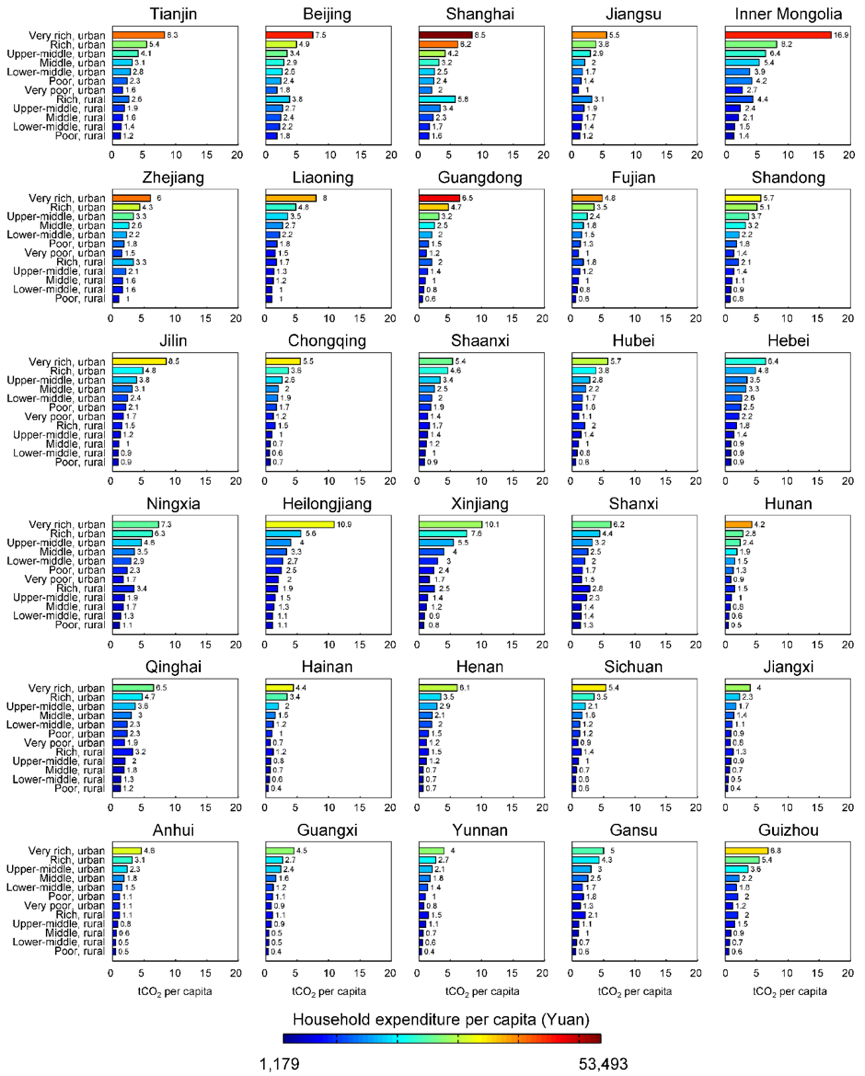
On March 30, 2020, research result from the team of Professor Wei Yi-Ming of the Center for Energy and Environmental Policy Research of Beijing Institute of Technology on "China's Economic Growth and Household Carbon Footprint", was published in Nature Sub-Journal (Nature Sustainability) as a research article. This work is supported the National Key Research and Development Program (2016YFA0602600) “Research on the Comprehensive Assessment Model of the Economic Impact of Climate Change” led by Professor Wei Yiming. Professor Wei Yi-Ming is the corresponding author of this article, and Dr. Mi Zhifu, a Ph.D. graduate of Beijing Institute of Technology and assistant professor of University College of London, UK, is the first author of this article. The collaborators of the article include the famous author of the stern report, Professor Nicholas Stern of the London School of Political Economy and other international scholars.
Among the 17 sustainable development goals proposed by the United Nations, it is clearly proposed to achieve poverty-free, reduce inequality and mitigate climate change. These sustainable development goals are interrelated. This paper discusses the effect of China's economic growth on the above goals, and finds that the sustained growth of China's economy not only improves the income level of residents, but also promotes the equity of household carbon footprint. Carbon footprint refers to the total emission of greenhouse gases caused by individuals, households, organizations, activities or products, which is used to measure the impact of human activities on global warming. Due to the differences of income level, regional environment and lifestyle, the carbon footprints of different families are very different. This study calculates the carbon footprints of households in different income groups in 30 provinces of China, explores the relevance between the goals of climate change mitigation, poverty eradication and inequality reduction, and provides a coordinated governance mechanism for climate change mitigation and inequality reduction.
The study found that the carbon footprints of households with different incomes in China vary greatly, and the per capita carbon footprint of wealthy regions is higher. In 2012, the highest-income 5% of the population contributed 17% of the country ’s household carbon footprint, while the lower-income 50% of the population contributed only 25%. From an urban-rural perspective, in 2012, the urban population accounted for 53% of the country's total population, contributing 74% of the country's household carbon footprint. The difference between urban and rural areas is huge. The per capita household carbon footprint in urban areas is 2.8 tons, which is 2.5 times the per capita carbon footprint in rural areas.
The study also found that China's economic growth is conducive to promoting the equity of household carbon footprints. In terms of time span, China's carbon footprint Gini coefficient (the smaller the coefficient means the more equal) it fell from 0.44 in 2007 to 0.37 in 2012. From a spatial perspective, the equity of household carbon footprints in wealthy areas is relatively high. For example, in 2012, the per capita GDP of Tianjin, Beijing, Shanghai, and Jiangsu exceeded 68,000, and their carbon footprint Gini coefficients were relatively low, at 0.19, 0.16, 0.14, and 0.18, respectively. Conversely, the carbon footprint Gini coefficient of less developed regions is relatively high. For example, Guizhou's carbon footprint Gini coefficient is 0.38.
Previously, Professor Wei Yi-Ming's team had published three research articles in Nature Journals, including Nature Energy, Nature Climate Change and Nature Communications.

Link to full paper: https://www.nature.com/articles/s41893-020-0504-y